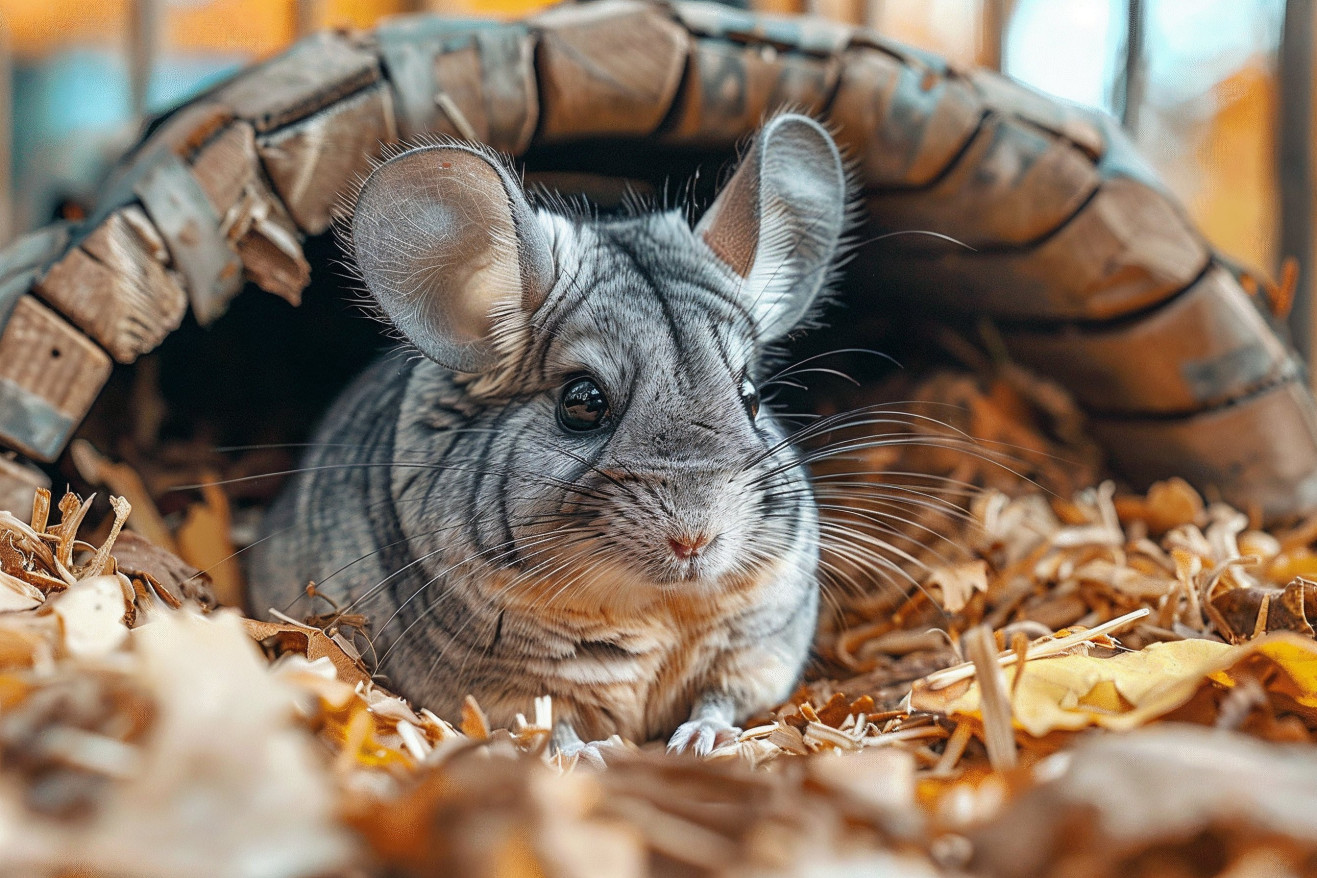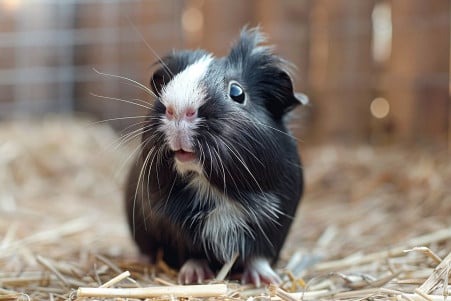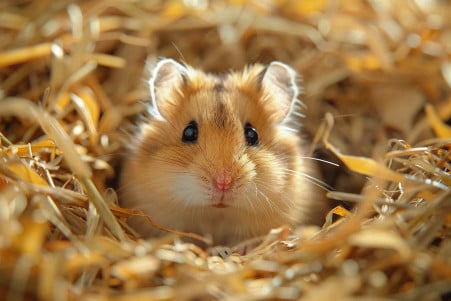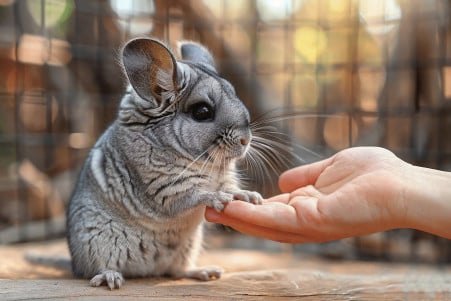Do Chinchillas Smell? Uncovering the Truth About Their Scent
2 March 2024 • Updated 2 March 2024

Chinchillas are best known for their soft fur, but are they equally well known for having a soft scent? The answer is yes, chinchillas are generally not smelly animals, and this is due to their natural cleanliness and frequent dust baths. That said, if you do smell an odor, it could be due to a dirty cage or health issues like dental problems, which would require a vet’s care.
In an effort to get to the bottom of chinchilla care, this article will look at veterinary science, animal behavior, and pet care to figure out why chinchillas may or may not smell. It includes expert perspectives, insights from experienced chinchilla owners, and studies to explain how diet, grooming, and health can impact how much your furry friend smells.
This in-depth look will help you better understand what it takes to keep your chinchilla smelling as little as possible.
Do chinchillas smell?
Keeping Your Chinchilla Clean: Grooming Basics
One of the most unique things about chinchillas is their dust baths, which are an essential part of their grooming routine. Not only does dusting help keep their fur soft and luxurious, but it also helps keep odors at bay.
According to Quality Cage Crafters, chinchillas need a special dust bath that is made of fine, natural powder that will absorb oils and moisture, which is important for their overall hygiene. It’s important to never give chinchillas water baths, as they can lead to ‘fur slip’ and even fungal infections due to their thick fur.
To make sure your chinchilla is grooming itself properly, give it a dust bath every day for 15–20 minutes and make sure the bath is big enough for the chinchilla to roll around in.
PetKraze explains that chinchillas are good at grooming themselves and don’t need much help, but it can be helpful to use a long-toothed comb to help them detangle their fur every once in a while. If you don’t keep up with this, your chinchilla’s fur can become greasy or matted due to humidity, which can lead to an odor.
To make sure your chinchilla’s fur stays healthy, PetKraze recommends keeping it in a low-stress environment and providing plenty of things to chew on. Planet Chinchilla also recommends this to prevent dental issues that could impact your chinchilla’s grooming habits.
Regular grooming, especially when it comes to making sure your chinchilla gets its dust bath, is important to prevent health issues that could lead to odors and keep your chinchilla smelling as good as possible.
Finding the Cause: Medical Conditions That Cause Chinchilla Odor
Despite their cute and cuddly appearance, chinchillas are susceptible to medical conditions that can cause them to smell. For example, common problems like dental disease can lead to a smelly chinchilla. PetHelpful notes that chinchillas tend to show signs of illness subtly, so it’s important for owners to be vigilant. Signs like a loss of appetite, a lack of energy, or changes in stool can be indicative of an underlying problem.
The need for professional veterinary care to diagnose and treat these conditions is noted by Long Island Bird & Exotics. Dental disease, which is a common cause of chinchilla odor, needs to be diagnosed and treated by a vet because if it’s left untreated, it can cause drooling, which can lead to skin infections and a bad smell.
Veterinary Partner – VIN explains that owners can take steps to prevent this by making sure their chinchilla is eating a well-balanced diet that’s high in fiber and low in sugar and protein to prevent gastrointestinal issues and maintain dental health.
They also note that regular veterinary check-ups are important for catching and treating problems early on to reduce the risk of medical-related odors.
Owners can also help prevent disease and the odors that come with it by making sure their chinchilla lives in a well-ventilated space and that they’re practicing good grooming habits, which will help ensure that their chinchilla stays healthy, happy, and odor-free.
Diet: The Most Important Factor in a Chinchilla’s Scent
One of the most important things to know about chinchillas is what they should be eating. This is important for their overall health and for making sure that they’re not stinking up your home.
According to VCA Animal Hospitals, chinchillas should be fed a diet that is high in fiber and low in fat, with the majority of their food coming from low-calcium grass hays like Timothy or orchard grass, which should be available at all times.
In addition to this, chinchillas should be given a small amount of commercial pellets that are specifically formulated for chinchillas to help ensure that they’re getting all of the nutrients that they need and to help prevent gastrointestinal issues.
According to UK Pet Food, what a chinchilla eats can have a big impact on their scent. If they’re fed foods that are high in fat or sugar, like nuts and some fruits, it can lead to obesity and digestive issues, both of which can contribute to a chinchilla’s scent.
Because of this, fresh vegetables and fruits should be added to a chinchilla’s diet, but they should be done so in a way that’s careful and limited.
In addition to this, VCA Animal Hospitals explains that it’s important to make sure that chinchillas have access to fresh, clean water. This is important for their diet and their scent.
By making sure that they have access to water at all times and that their water bottles are kept clean, you can help ensure that your chinchilla’s scent is kept to a minimum and that they have a healthy digestive system.
By making sure that your chinchilla is eating the right foods and drinking enough water, you can help make sure that they don’t smell and that they’re as healthy as possible.
Creating the Perfect Environment: How to Reduce Smell in Chinchilla Care
Chinchilla owners need to understand that the environment plays a big role in how much their pet smells. The RSPCA notes that chinchillas need cool, dry conditions, similar to the South American Andes where they come from. They also need a large, secure, well-ventilated space that’s free from drafts, with temperatures kept between 50–65°F to match the conditions of their natural habitat.
Not only does this match their environmental needs, but it also helps prevent odors from building up.
A proper environment is also important for helping chinchillas maintain their own cleanliness. Cages need to be cleaned regularly to make sure that urine and feces don’t build up and cause bad smells.
According to eLife, good ventilation is important for helping odors disperse, so it’s important to make sure that the environment has good airflow. In addition, bedding should be absorbent, nontoxic, and free from long fibers that could wrap around the chinchilla or be ingested.
Poor environments that cause stress can lead to a change in a chinchilla’s smell. Making sure that the environment is calm and that the animal is kept on a regular schedule will help prevent stress and the resulting odors. By carefully creating the right environment and keeping it clean, owners can help control their chinchilla’s natural smell and make sure that their living situation is pleasant and peaceful.
Conclusion: Chinchilla Odor and the Keys to Proper Chinchilla Care
In summary, chinchillas are naturally low-odor animals as long as they are properly cared for. Pet Keen notes that proper grooming with dust baths, keeping their living space clean, and taking them to the vet for regular check-ups are all important for keeping them healthy and odor-free. In addition, Quality Cage points out that a proper diet is important for a chinchilla’s health, as it can impact their digestive health and their odor.
All of the experts stress the importance of proper chinchilla care, including feeding them the right foods, not using the wrong types of bedding, and keeping an eye on their health for any signs of problems.
Quality Cage also notes the importance of keeping their living space clean, while Pet Keen covers the importance of grooming and diet, showing that chinchilla owners have a lot of responsibility when it comes to keeping their pets clean and odor-free.
Keeping a chinchilla’s natural odor at bay is a sign of a responsible pet owner. By continuing to learn and working with vets, pet owners can make sure that their chinchillas continue to be wonderful, odor-free pets.


